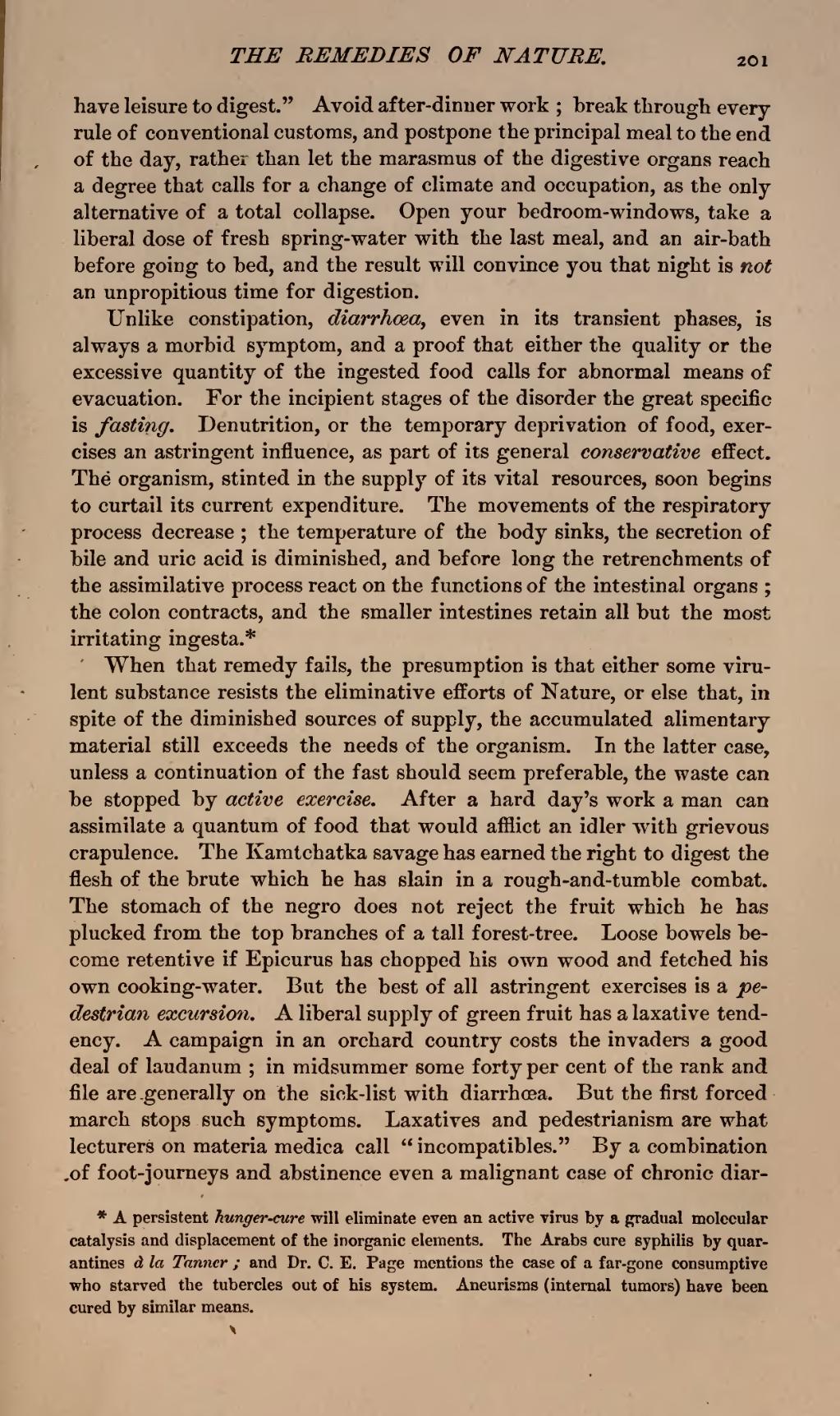have leisure to digest." Avoid after-dinner work; break through every rule of conventional customs, and postpone the principal meal to the end of the day, rather than let the marasmus of the digestive organs reach a degree that calls for a change of climate and occupation, as the only alternative of a total collapse. Open your bedroom-windows, take a liberal dose of fresh spring-water with the last meal, and an air-bath before going to bed, and the result will convince you that night is not an unpropitious time for digestion.
Unlike constipation, diarrhœa, even in its transient phases, is always a morbid symptom, and a proof that either the quality or the excessive quantity of the ingested food calls for abnormal means of evacuation. For the incipient stages of the disorder the great specific is fasting. Denutrition, or the temporary deprivation of food, exercises an astringent influence, as part of its general conservative effect. The organism, stinted in the supply of its vital resources, soon begins to curtail its current expenditure. The movements of the respiratory process decrease; the temperature of the body sinks, the secretion of bile and uric acid is diminished, and before long the retrenchments of the assimilative process react on the functions of the intestinal organs; the colon contracts, and the smaller intestines retain all but the most irritating ingesta.[1]
When that remedy fails, the presumption is that either some virulent substance resists the eliminative efforts of Nature, or else that, in spite of the diminished sources of supply, the accumulated alimentary material still exceeds the needs of the organism. In the latter case, unless a continuation of the fast should seem preferable, the waste can be stopped by active exercise. After a hard day's work a man can assimilate a quantum of food that would afflict an idler with grievous crapulence. The Kamtchatka savage has earned the right to digest the flesh of the brute which he has slain in a rough-and-tumble combat. The stomach of the negro does not reject the fruit which he has plucked from the top branches of a tall forest-tree. Loose bowels become retentive if Epicurus has chopped his own wood and fetched his own cooking-water. But the best of all astringent exercises is a pedestrian excursion. A liberal supply of green fruit has a laxative tendency. A campaign in an orchard country costs the invaders a good deal of laudanum; in midsummer some forty per cent of the rank and file are generally on the sick-list with diarrhœa. But the first forced march stops such symptoms. Laxatives and pedestrianism are what lecturers on materia medica call "incompatibles." By a combination of foot-journeys and abstinence even a malignant case of chronic diar-
- ↑ A persistent hunger-cure will eliminate even an active virus by a gradual molecular catalysis and displacement of the inorganic elements. The Arabs cure syphilis by quarantines à la Tanner; and Dr. C. E. Page mentions the case of a far-gone consumptive who starved the tubercles out of his system. Aneurisms (internal tumors) have been cured by similar means.
